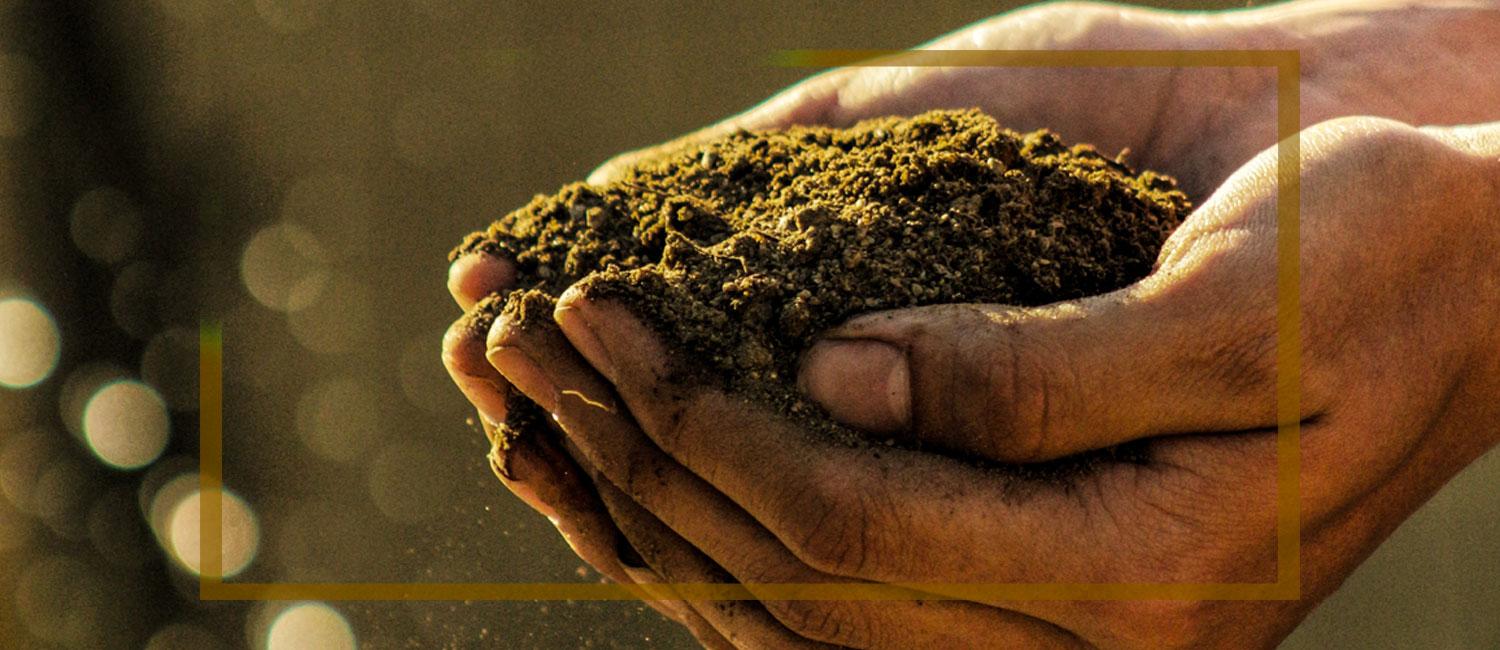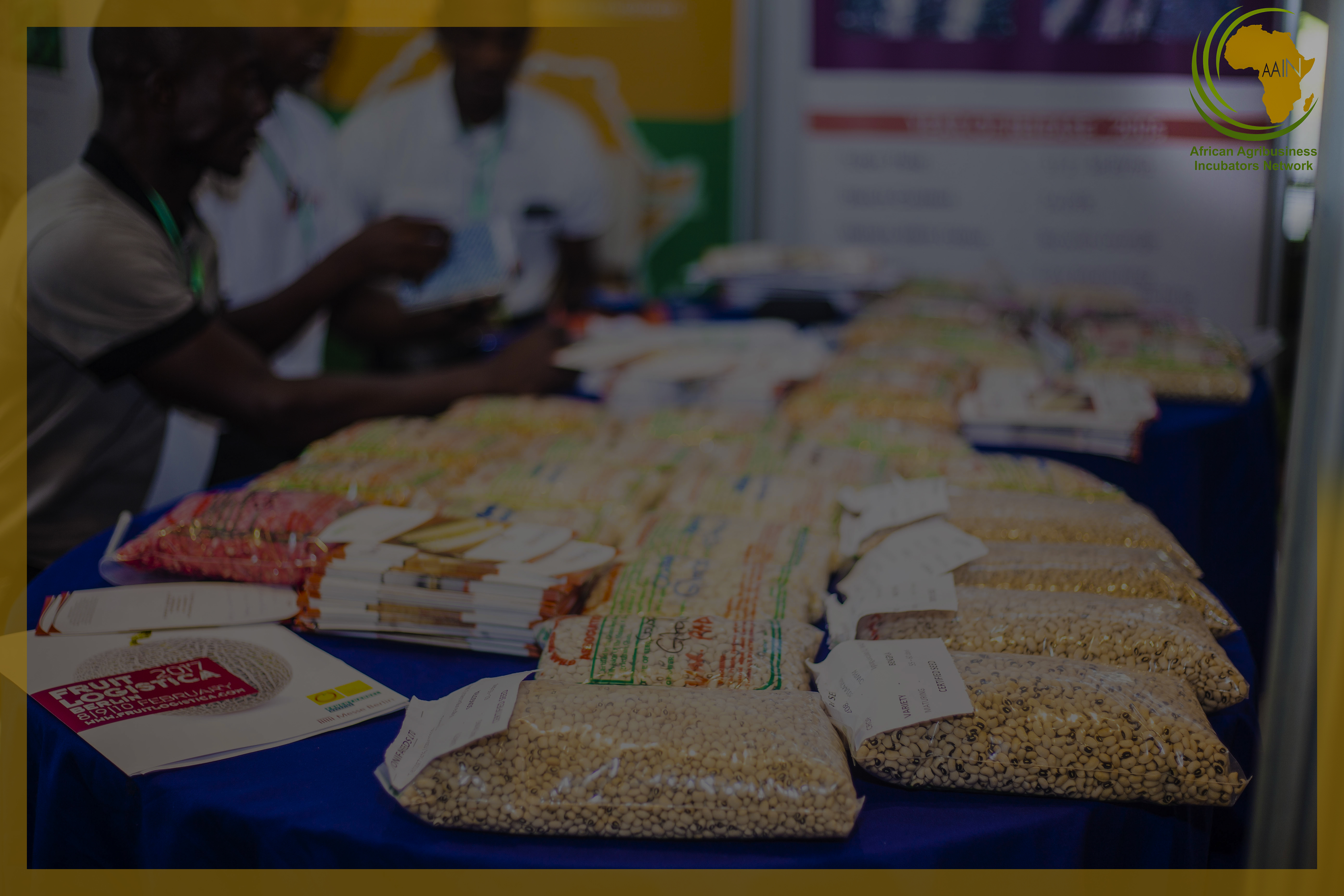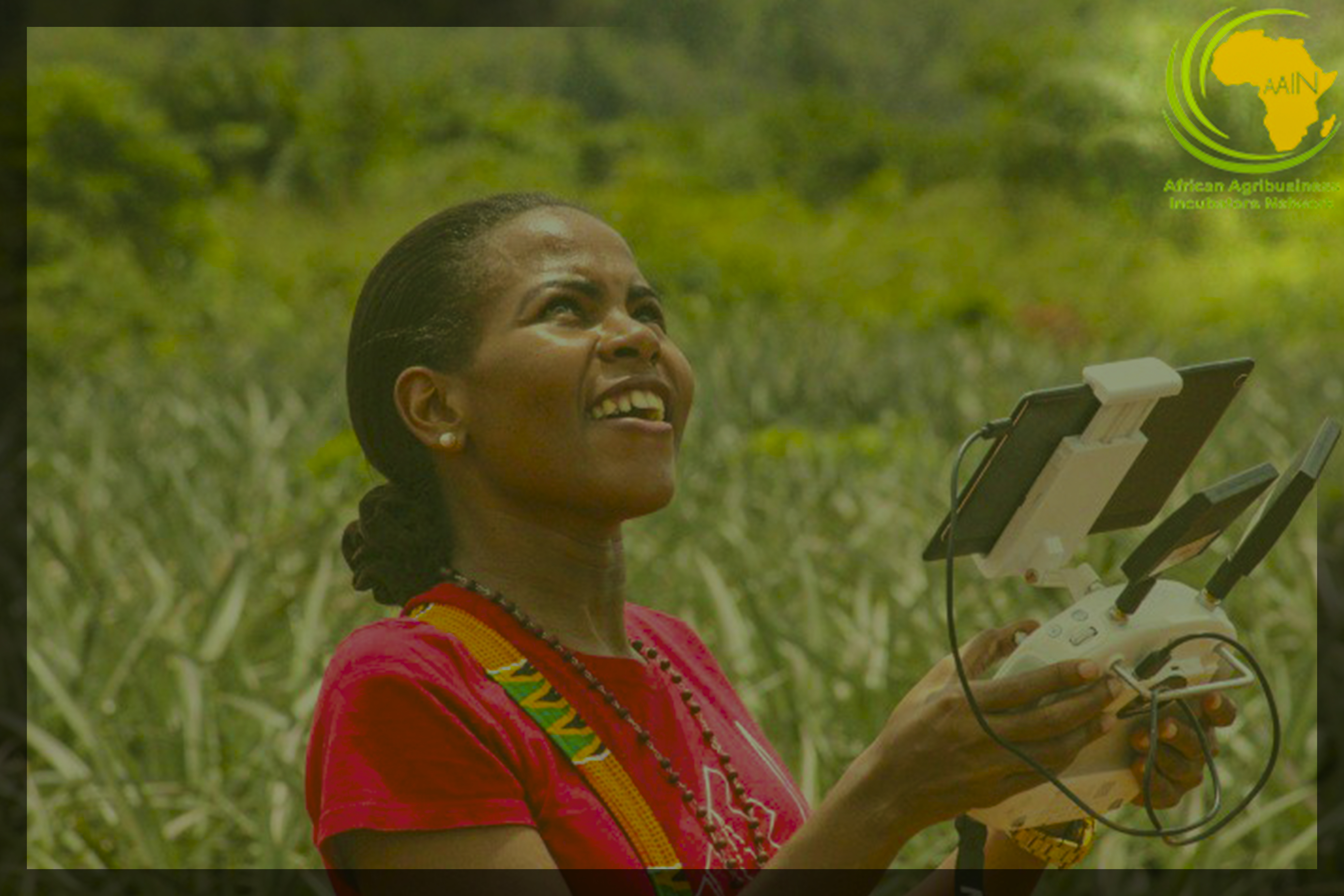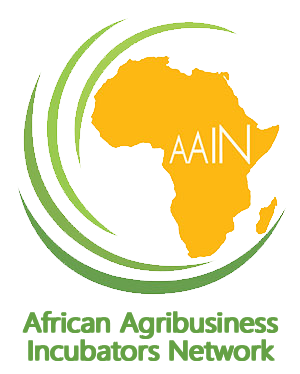
Services

To ensure that the incubators have efficient systems and staff with the necessary skills, Agribusiness incubators have been identified as a major approach to supporting the creation of sustainable commercial agribusinesses, jobs and wealth among the youth and women in Africa. However, for agribusiness incubators to be successful and sustainable there is the need to ensure they have the necessary internal structures, models and resources to be able to support agribusiness incubators.
”Our Expected Impact
660
Agribusiness Incubators Hubs established and operational across Africa
5000+
Incubator Managers and Associates capacity built”
The Solution
The Incubator Systems Development and Capacity Building Service offers AAIN’s mem-bers access to a comprehensive set of essen-tial standard operating procedures (SOPs) and process manuals that every incubator needs but cannot easily develop for itself.
In addition, AAIN provides hands-on training and coaching to incubator managers and staff to enable them apply best practices in incubator and incubatee development .
The Incubator Systems Development and Capacity Building Services cover:
1. Capacity building of leaders and man-agers of incubators: AAIN provides ca-pacity building for leaders and managers of incubators to enable them carefully manage the daily operations of the incu-bators in order to meet financial and market targets. Likewise, AAIN provides training in financial management, hu-man resource management, marketing management and strategic management capacity building for leaders and manag-ers of incubators. This is needed to speed up the development of business-es within incubators.
2. Implementing Management System Development: AAIN has adopted man-agement systems for its incubator man-agers to help incubators improve their performances and manage risks, while operating in more efficient and sustaina-ble ways. AAIN supports managers of incubators to operate within a frame-work of policies, processes and proce-dures which are meant to achieve set objectives. These management systems have been tailored to suit the specific needs of each incubator.
3. Accreditation and M&E Development: AAIN has an accreditation system that aims at helping incubators upgrade and meet minimum required standards nec-essary for them to gain acceptance and access to development partners and institutions across the globe. The ac-creditation system attests to the credi-bility of incubators and the quality of their products and services. It also helps incubators to perform effectively and scale up their processes. AAIN has also developed monitoring and evalu ation systems to check the perfor-mance and progress of accredited incu-bators against set targets.
4. Coaching and Mentoring of Incubators: AAIN provides incubators with coaches/ mentors to equip them with skills and knowledge relevant for their operation and sustainability. AAIN’s mentors and coaches, with their wealth of experi-ence, help incubators identify risks and challenges and adopt measures to miti-gate them. Incubators through, AAIN’s experts and coaches, are able to lever-age technology and resources needed to reach their desired goals and objectives.
5. Agribusiness Education and Incubation Programme support: AAIN provides training and incubation support pro-grammes for incubators. These support programs are based on identified needs of incubators and incubatees. Incuba-tion support programs are carried out with assistance from local and interna-tional development partners.

Technology Commercialization And Market Development
To keep incubators aware of emerging technologies and new market opportunities that can provide their incubatees with business opportunities, AAIN supports startups, SMEs, Incubators, women, and youth to off-take new ideas, innovations and technologies from research to commercialization. It also supports tech-nology development and transfer as part of the drive to mechanization. AAIN de-risks the process of commercialization on to improve the investment climate.
Our Expected Impact
300
Agribusiness Technologies Commercialized
“AAIN will facilitate access to technologies and innovations by incubators for commercialization and business creation using incubation model . AAIN will engage and work with Universities and research organizations to support science commercialization”
1. Facilitate Technology Access and Trans-fer: AAIN collects and disseminates in-formation on innovations relevant to African agribusiness incubation to its member agribusiness incubators. This includes mapping agribusiness opportu-nities and underpinning that information with knowledge of specialized experts and mentors who can make vital contri-butions to resolving managerial, finan-cial and technical problems faced by the Incubators and their Incubatees.
2. Incubation Business Model Develop-ment and sustainability: AAIN supports incubators to develop their business ideas into workable models that leads to commercial gains in both the short and long term yielding positive impacts for the incubators. AAIN also provides a system that helps incubators to focus on their core business at the startup stage in order to protect them from drifting entirely to innovations and new ideas that may emerge. This ensures sustaina-bility of the original business models.
3. Support Incubator Input and Output Market Development: AAIN facilitates access to inputs and outputs markets for its agribusiness incubators. With its vast resources and partners across the world, AAIN helps incubators to access technol-ogy from both local and international suppliers and help them procure and utilize these technologies. AAIN also identifies markets which demand the services of its incubatees and enable them connect to these markets.
4. Incubator Business-to-Business Promo-tion: AAIN links business within its incu-bators to other businesses also within its incubators that need the services or products of each other. This helps incu-bator businesses reduces the transaction cost involved in advertising, marketing and promotion.
5. Public Private Partnership develop-ment: Startups and SMEs are prone to higher risk and uncertainty in technolog-ical innovation because of their limited research and development capacity and financial capital. AAIN has realized this challenge and therefore links its incuba-tors to the appropriate public or private institutions to enhance the use and com-mercialization of developed technolo-gies. AAIN does this by entering strategic partnerships that benefit all parties. Be-sides AAIN collaborates with govern-ments to remove barriers and create enabling environments that will enhance incubators access to and use of available technologies.
The growth of competitive agribusiness in Africa is severely constrained by the low use of modern inputs and limited access to improved technologies. According to the World Bank, access to technology and skills is one of the main challenges facing agribusinesses in Africa.

Business Development And Mentorship
To equip incubator management with the best business tools and help them to find and support mentors, especially for young and female incubatees, Many entrepreneurs as well small and medium enterprises (SMEs) fail at the initial years of establishment because they lack the needed resources and skills to survive challenges at the early stage of business. They have limited ac-cess to financial products and services, and are not aware of people, networks and support services that could lead to the long term success of their businesses.
”Our Expected Impact
200+
Agribusiness Incubators registered and supported by AAIN
10,000+
SMES profiled for incubation support”
The Solution
The African Agribusiness Incubator Net-work (AAIN) provides incubators and SMEs a pool of mentors who are trained and skilled in supporting businesses to start, survive and grow.
Through the Business Development and Mentorship Support (BDMS) For Youth and Start-ups, AAIN works directly with early stage agribusinesses, supporting their growth through the provision of knowledge, skills, networking and men-torship.
Specific support provided include:
1. Mapping financial products and ser-vices for incubators and linkages with possible investors and associ-ate partners: AAIN has identified financial products and services for agribusiness development. These include grants, loans (working capi-tal, capital investment) and a blend of these from government, interna-tional organizations, donors and pri-vate sector institutions. AAIN, through its experienced senior man-agers and pool of experts, is there-fore able to identify the specific fi-nancial needs of its incubators/incubatees and match them to these sources of financing. AAIN provides other training for its incubators in areas such as business skills, project management as well accounting and finance.
2. Developing Pipeline of Bankable Incubator Business to Potential In-vestors: AAIN has mentors who work with youth and startup entrepre-neurs to develop bankable business plans, proposals and projects which are channeled to potential investors for funding.
3. Development of risk mitigation models for agribusiness incubation: AAIN supports youth and start-ups to identify various risks that are as-sociated with their businesses and help them strategize to mitigate these risks. AAIN also provides men-torship for youth and start-ups to guide them through the early stages of business.
4. Serving and management of struc-tured finance model: Youth and startups in agribusiness have unique financing needs. Traditional banks and financial institutions do not ad-dress the financing needs of start-up agribusinesses. AAIN has therefore developed tailor-made finance mod-els that meet specific needs of youth and startups in agribusiness.

Agribusiness Incubator Accreditation And Due Diligence:
To help incubator managers identify weaknesses and affect timely remedies assuring their investors and creditors that they, not only can, but are indeed delivering the services they promise. AAIN has an accreditation system that aims at helping incubators upgrade and meet minimum required standards necessary for them to gain acceptance and access to development partners and institutions across the globe. The accreditation system attests to the credibility of incubators and the quality of their products and services. AAIN has also developed monitoring and evaluation systems to that assesses the performance and progress of accredited incubators against set targets.
Our Expected Impact
150+ Agribusiness and Associate Incubators Accredited
200+ Small scale Incubator Hubs Accredited
4 Incubators Centres of Excellence established and functional with contact offices to support emerging incubators in the region
Incubators and Experts Accreditation
The African Agribusiness Incubation Network (AAIN) has developed an accreditation scheme for agribusiness incubators and experts to certify the quality of their work and services. AAIN’s incubator monitoring and evaluation system is based on its Incubator Sustainability Framework which tracks six key indicators of success. These indicators also form the basis for accreditation of incubators. The indicators are:
- Governance and Management System;
- Income Generating Streams
- Quality of Service to Incubatees
- Profitability and Success of Incubatee Businesses
- Number of Jobs Created by Incubators and Incubatees
- Monitoring and Evaluation Plan
AAIN Accreditation Scheme
1. Help in establishing agribusiness incubators: AAIN’s accreditation provides systems and capacity development and strengthens the internal processes of agribusiness incubators enabling them grow and remain sustainable in the long term. AAIN does this by collaborating with its partners and experts across the continent and the rest of the world. The accreditation process facilitates incubators access to financial and non-financial investment support services and products from institution across the globe.
2. Provide accreditation services after system development and capacity development: AAIN provides a system where successful incubators with the appropriate structures obtain accreditation. These incubators also help build the capacity of other less developed incubators and enhance their growth. Through this AAIN is able to replicate its incubation processes to reach several agribusiness entrepreneurs in Africa.
3. A pool of experts to provide advisory services: AAIN provides training and accreditation for independent experts to enable them give practical assistance, advice and support to incubator managers and incubatees. The input of these experts helps make a difference in the operations of incubators leading to their long term viability.

African Agribusiness Incubation Fund (AAIF)
The agricultural sector in Africa contributes an estimated 25% to the continent’s GDP and employs about 70% of the workforce. In spite of this, agribusinesses face a number of challenges including access to finance which limits business growth. According to the World Bank, an estimated $940 billion investment is needed to grow African agriculture which includes agribusinesses by 2050.
The Solution
The African Agribusiness Incubation Fund (AAIF)
The African Agribusiness Incubation Fund (AAIF) is a fund introduced by the African Agribusiness Incubation Network (AAIN) to serve as a bridge between agribusi-ness Incubators and their incubatees to enable prepare to access funding and obtain the necessary technical assistance required by incubatees to successfully launch their businesses.
Sources of Funding: the AAIF harnesses financial and technical resources from financial institutions, donors and corpo-rate bodies for the fund.
Eligible Beneficiaries: The financing is accessed by incubators, small scale incu-bator hubs, students, SMEs, cooperatives or individuals with ideas worth spread-ing. The AAIF is managed on commercial basis.
Through the AAIF, aspiring agriprenuers receive:
a. Technical Assistance: through the AAIF, incubators and incubatees get the necessary technical support they need to prepare for financing. This include support from experts in de-veloping and refining business mod-els, business plans and strategies, undertaking market research etc. AAIF working through a network of experts funds the cost of these ser-vices to incubators and incubatees.
b. Access to funding: The AAIF helps agribusinesses to access funding from financial institutions, donor agencies and investors. Startups and SMEs are often considered to be too small and highly risky ventures when accessing finance from financial insti-tutions. However, within the AAIN, agribusiness incubatees are provided with training on basic bookkeeping services and they are also assisted to develop successful business plans, which are necessary requirements in securing funding from any financial institution.
c. Linkages to Financial Institutions: The AAIF presents incubatees (start-ups and SMEs) under the AAIN agri-business incubator to the appropri-ate funding institution. Startups and SMEs under the AAIF are have ac-ceptable levels of risk failures and they are monitored and supported even after gaining access to funding and this increases the confidence of funding institutions in incubates un-der the AAIF.
